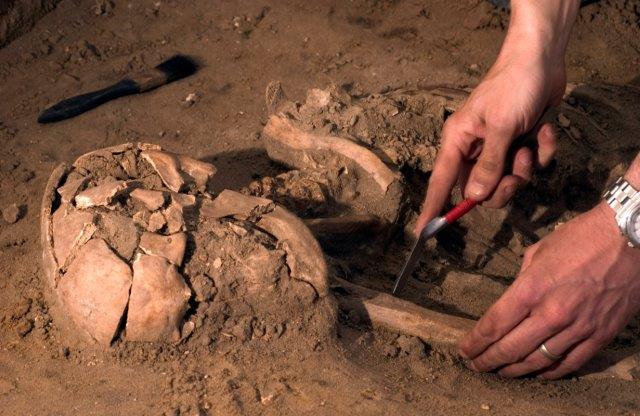FOR IMMEDIATE RELEASE
ACS News Service Weekly PressPac: January 22, 2014
Seashells inspire new way to preserve bones for archeologists, paleontologists
Recreating the story of humanity’s past by studying ancient bones can hit a snag when they deteriorate, but scientists are now reporting an advance inspired by seashells that can better preserve valuable remains. Their findings, which appear in the ACS journal Langmuir, could have wide-ranging implications for both archeology and paleontology.
Luigi Dei and colleagues explain that a process similar to osteoporosis causes bones discovered at historically significant sites to become brittle and fragile — and in the process, lose clues to the culture they were once part of. Preserving them has proved challenging. Current techniques to harden and strengthen bones use vinyl and acrylic polymers. They act as a sort of glue, filling in cracks and holding fragments together, but they are not ideal. In an effort to stanch the loss of information due to damage, Dei’s team set out to find a better way to preserve old bones.
The researchers turned to seashells for inspiration. Using skeletal fragments from the Late Middle Ages, they grew aragonite, a kind of lime that some sea animals produce to shore up their shells, on the bones in a controlled way. The treatment hardened the surfaces of the bones, as well as the pores inside them, making the ancient remains 50 to 70 percent sturdier. “These results could have immediate impact for preserving archeological and paleontological bone remains,” the scientists conclude.
The authors acknowledge funding from Consorzio Interuniversitario per lo Sviluppo dei Sistemi a Grande Interfase (CSGI), Florence, Italy; the University of Florence; the TEMART Project funded by the European Fund for Regional Development; the Tuscany region; and the S.I.C.A.M.O.R. PAR-FAS Project Tuscany Region.


ACS Editors' Choice
Do you want to keep up with the frontiers of science? Check out our new Open Access service, ACS Editors’ Choice. The website features one top story every day, selected from ACS’ more than 40 peer-reviewed journals, to give the public free, direct access to some of the most relevant scientific research going on today.


